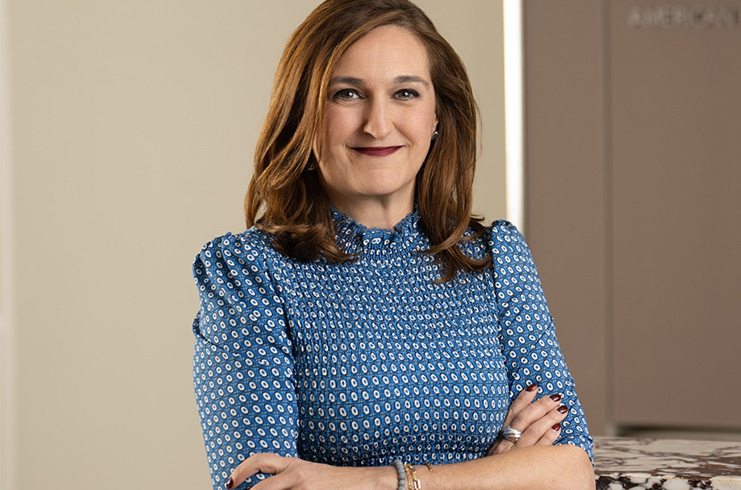
In hospitality tech, most innovations have improved how hotels execute existing tasks—faster check-ins, better channel management, more flexible CRMs. But what if a technological shift could completely change what those tasks are, and even redefine the purpose of a hotel?
At HITEC 2025, Richard Valtr, founder of Mews, shared his perspective on how generative AI and a reimagined tech stack could finally bring that shift to life. In conversation, he laid out a vision of hospitality where personalization, flexibility, and local integration are no longer luxury aspirations—they’re operational expectations.
Rethinking the PMS Era
Valtr places the emergence of LLMs (large language models) on par with previous landmark moments in hospitality tech: the microcomputer enabling on-site property management systems (PMS), the central reservation system (CRS) expanding multi-property coordination, and the cloud’s arrival unlocking real-time data flow. But, he argues, those past innovations mainly helped hoteliers execute the same processes faster. Generative AI, by contrast, makes it possible to rethink the processes altogether.
“We’re finally at a point where the technology allows us to actually reshape the operating rhythm of the hotel,” Valtr said. “It’s no longer about standardizing check-ins—it’s about making them feel like welcomes.”
He imagines a world where hotel staff are empowered by AI to act more like innkeepers—guides to a personalized, localized, and dynamic experience.
From Commodity to Customization
Valtr believes generative AI will eventually allow every hotel guest to have a fully customized 24-hour journey: a minibar stocked with their favorite items, a gym visit guided by their usual trainer’s routine, even a digital or human concierge who proactively recommends local activities.
“What used to be luxury 100 years ago—bespoke service—is finally scalable,” he said. “Standardization made sense when personalization wasn’t feasible. But now, the expectation will be that your experience doesn’t start and end with the room.”
He sees this shift extending beyond the walls of the hotel. “More operators will think of themselves not as managers of a hotel,” Valtr said, “but as orchestrators of the neighborhood experience.”
Changing the Role of Hotel Staff
This evolution isn’t just about better guest experiences—it could also reshape labor models. Rather than hiring separate receptionists, concierges, and guest experience managers, hotels may instead look for generalists supported by AI. These employees could shift seamlessly between roles, aided by systems that surface the right context and tasks in real time.
“It’s like giving every staff member a suit of armor,” Valtr said. “AI can make it easier for them to do what they already want to do—deliver exceptional, human service.”
The Tech Stack That Enables Innovation
But delivering on this vision will require a new approach to hotel tech—one that balances flexibility with integration. Valtr is critical of the binary thinking around “all-in-one” versus “best-of-breed” systems. Instead, he argues, the goal should be adaptable central systems that make it easy to plug in purpose-built solutions as needed.
“You shouldn’t be forced to standardize across every property just for the sake of brand consistency,” he said. “A beachfront resort with cabanas has different tech needs than a city-center hotel. Best-of-breed shouldn’t mean cobbling together a compromise—it should mean tailoring tools to context.”
He likens Mews’ approach to Apple’s model: an integrated ecosystem with a large, curated marketplace of apps and services. “We see ourselves as guarantors of the guest experience,” he said. “It’s our job to make sure the full stack works together, whether it’s AI, third-party tools, or service layers.”
AI Is Inevitable—But Human Intuition Still Matters
Despite the transformative potential of AI, Valtr cautions against assuming a single timeline for adoption. “Tech people like me tend to overestimate the short-term and underestimate the long-term,” he said with a smile. “Some markets, like Egypt, may reach this faster because of labor dynamics or cultural preferences. In others, it will take longer—but it’s coming.”
In either case, Valtr believes the most successful hotels will be those that embrace tech not just as a tool, but as a means to enhance human hospitality. “Whether the experience is delivered by a chatbot or a person, it has to feel intentional,” he said. “That’s how we move from transactions to real hospitality.”







